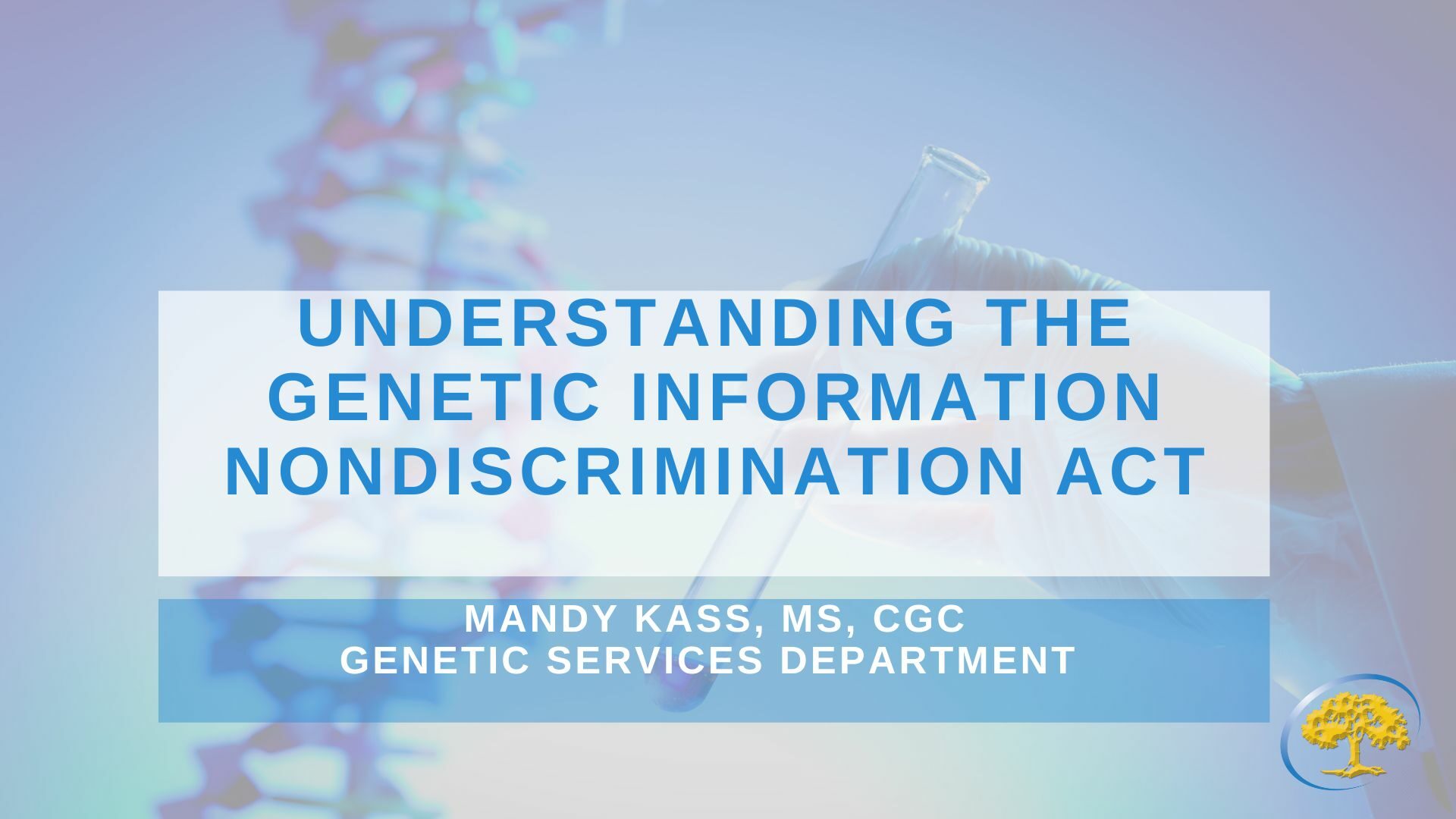
Posted 1 year ago
Understanding The Genetic Information Nondiscrimination Act
In 2008, after over a decade of work by lawmakers, patients, and science advocacy groups, President George W. Bush signed into law the U.S. Genetic Information Nondiscrimination Act (GINA). But what exactly is GINA and how does it protect those who have undergone genetic testing?
What is genetic information and why is it important?
The genetic information protected by law includes family health history, the results of genetic test results, the use of genetic counseling and other genetic services, and participation in genetic research. Genetic information helps you better understand health conditions that may run in your family, as well as your risk for developing certain health conditions or having a child with certain conditions. This information can help guide risk management and lifestyle choices. Genetic discrimination is the misuse of this genetic information.
What is GINA and how does it help me?
GINA is a federal law that protects individuals from genetic discrimination in health insurance and employment. With these protections, you can feel comfortable talking about family health history with your family and healthcare providers as well as pursue genetic testing to learn about potential health risks without fear of genetic discrimination. GINA makes it against the law for health insurers to request, require, or use genetic information to make decisions about your eligibility for health insurance or your health insurance premium, contribution amounts, or coverage terms. This means it is against the law for your health insurer to use a genetic test result or family health history as a reason to deny you health insurance, decide how much you should pay for your health insurance, or consider your genetic information as a pre-existing condition.
It is important to note that GINA applies to most health insurers, however, the health insurance protections of GINA do not apply to members of the US Military who receive their care through Tricare Military Health System, Veterans who receive their care through the Veteran’s Administration, the Indian Health Service, and federal employees who get care through the Federal Employees Health Benefits Plans. These groups have policies in place that provide discrimination protections similar to GINA.
In addition to GINA’s protections from genetic discrimination in health insurance, GINA makes it against the law for employers to use your genetic information to make decisions about hiring, firing, promotions, pay, privileges, or terms OR to limit, segregate, classify, or otherwise mistreat an employee. This means it is against the law for your employer to use your family health history and genetic test results in making decisions about your employment.
What does GINA not cover?
There are a few notable limitations to GINA’s protections. With respect to insurance, GINA’s protections are limited to health insurance, meaning it does not cover life insurance, disability insurance, or long-term care insurance. There is also a small business exemption for employers with fewer than 15 employees.
The Genetic Information Nondiscrimination Act was a remarkable achievement because it is one of the first laws that prospectively protects people from discrimination. This has allowed millions of people to access their genetic information to make meaningful health management choices. If you have questions about GINA, consider speaking to a genetic counselor or visit www.ginahelp.org.
Mandy Kass, MS, CGC
Genetic Services Department
As a certified oncology genetic counselor, Mandy works with patients who have a personal and/or family history of cancer to assess their risk of having an inherited cancer predisposition. This information allows for the pursuit of early detection or possibly prevention of certain cancer types.
The ultimate goal of cancer genetic counseling is to empower patients to use their personal risk information to better inform treatment and management decisions and to educate family members on their possible cancer risks.

